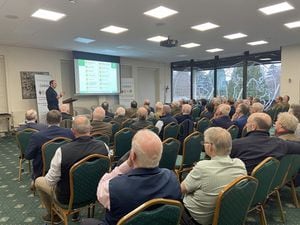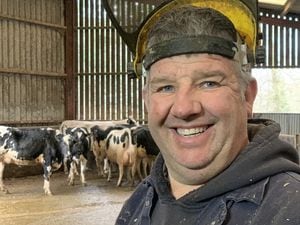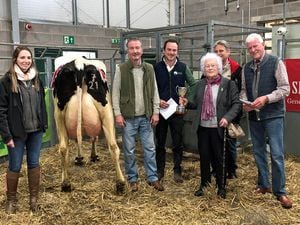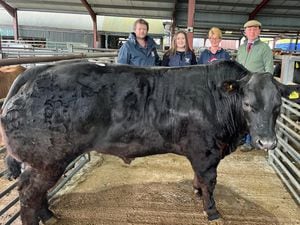Welsh Government urged to safeguard next generation of farmers
A rousing plea has been made to the Welsh Government to ensure the Sustainable Farming Scheme safeguards the next generation.

The Council for Awards of Royal Agricultural Societies (CARAS) Cymru held its annual conference at the Royal Welsh Showground, in Builth Wells.
CARAS Cymru vice chair, Mansel Raymond, stressed that the Sustainable Farming Scheme is critical for the future of Welsh agriculture.
He said young people needed to be encouraged to grow food that is in world demand.
“There seems, all of a sudden, to be a massive disconnect between the farming fraternity and our masters,” said Mr Raymond.
“That is something we have to change. This industry cannot afford to fall.
“If we lose production, if we lose that mass, the whole fabric of the industry will be lost and we’ll have to start from the bottom. The future of food production in Wales is important.”
The conference was chaired by past Royal Welsh Agricultural Society (RWAS) president and former NFU Cymru president, John R. Davies who said: “The key things we’ve got to do as a nation are to protect and feed ourselves.
“As farmers there is food production running through each and every one of us. It’s an absolutely crucial time for the future of Welsh agriculture."
Dr Nick Fenwick, formerly FUW head of policy, suggested there was an array of solutions to climate change, rather than a blanket 10 per cent tree cover target.
Around 30 per cent of Welsh emissions come from energy production, about double the footprint for agriculture. It is estimated that, over the next 25 years, the amount of energy needed in Wales would increase five-fold.
He stressed that farming is part of the solution, as the biggest contributor to green energy production which reduces agriculture’s carbon footprint. He illustrated his point by explaining that a 330 meters square area of solar panels would reduce carbon emissions by the same amount as a hectare of trees, as would a 10 kw water turbine or a 15 kw wind turbine.
Dr Fenwick urged: “Basically, solar panels are between 30 and 50 times more effective per unit area than tree planting in terms of reducing carbon emissions.
“So we have something that could complement tree planting, negate the need for tree planting on valuable farm land and form part of a far bigger equation, whereby we’re reducing Wales’s carbon footprint. But we’re not doing it by an arbitrary 10% tree cover target, resulting in vast areas of agricultural land.
“Nor should we start plastering Wales with solar panels. Basically, you’re talking about maybe the roof of a couple of farm sheds having the same impact as two or three hectares of trees.”
Welsh Government director of rural affairs, Gian Marco Currado and Bangor University senior lecturer in environmental management, Dr Prysor Williams delivered their perspective on sustainable farming and the new scheme proposals.
Mr Currado said the Welsh Government was committed to the whole farm approach and looking for a collaborative approach to the Sustainable Farm Scheme consultation. He encouraged farmers to feed in their views and offer alternative solutions.





